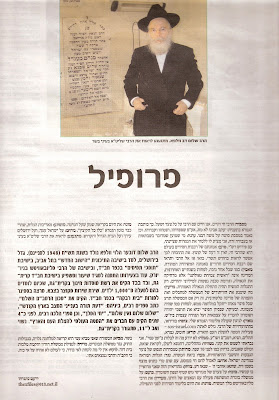 It's hard to believe, but today marks the seventeenth yahrtzeit of my mother, Betty Birnbaum Woolf ע"ה.
It's hard to believe, but today marks the seventeenth yahrtzeit of my mother, Betty Birnbaum Woolf ע"ה. She was, in every sense a remarkable woman. Widowed at the young age of 49, saddled with three not-at-all-easy-to-raise sons (to put it mildly), she persevered with courage, style and an inner spirit that still defies my attempts to comprehend it.
She was every inch a lady, with a very strong sense of genuine concern, morality, propriety, duende, affection and consideration. This wasn't only obvious to her children (children-in-law and grandchildren). Everybody saw it. Our house was the one one everyone wanted to visit. It seemed that everybody knew where the key to the house was 'hidden' (in the drier) and where the ever present big chocolate chip cookies were hidden.
She inspired and created the warm, inviting, inspiring Jewish home that we were privileged to grow up in and which so impacted upon our relatives and friends.
She was, as a friend remarked today (at the shiva for her own father) 'a remarkable woman.'
תהי נשמת אמי מורתי פעשא בת יוסף ושיינא פייגא ע"ה צרורה בצרור החיים ותהי מנוחתה כבוד עד ביאת הגואל.

